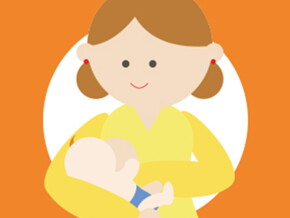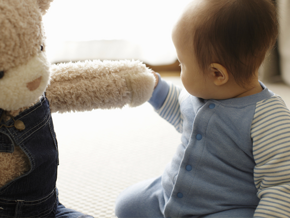
Antenatal Care - when should you see the doctor during your pregnancy
Routine visits
Once you have discovered you are pregnant, you should see your doctor to confirm it and to discuss any problems or questions you may have. Your doctor will need to find out your medical and menstrual history before examining you.
A urine sample will be taken to test for sugar and protein. Blood tests may be done, including tests to assess blood level, your blood group, your immunity to hepatitis B and German measles, and to screen for thalassemia, syphilis, hepatitis and AIDS.
Your height, weight and blood pressure will also be recorded.
An ultrasound scan may be done to check the size and location of the pregnancy. This will also detect baby’s heartbeat if the pregnancy is sufficiently advanced.
Depending on your needs, your doctor may also give you dietary advice and prescribe dietary supplements.
Unless there are complications, you are likely to see your doctor once a month until you are about 30 weeks, fortnightly until about 36 weeks, and weekly thereafter. During these visits, your doctor will record your weight, blood pressure, urine test results and baby’s growth. Be sure to highlight any problems you may face.
Certain tests may be repeated in late pregnancy, according to circumstances.
Every expectant mother has her own set of unique characteristics and needs. Every pregnancy is different and there is no such thing as a standard protocol of care for every woman. It is likely that your antenatal care differs from that of your friend’s. Please be sure to use your clinic visits to ask for information regarding your health, your pregnancy and delivery.
Ultrasound scans
An early ultrasound scan will help your doctor to confirm that you are indeed pregnant, determine the location of the pregnancy (whether or not it is in the womb), ascertain the number of foetuses, assess the size of the pregnancy (so as to reliably date the pregnancy) and check baby’s heartbeat. Certain abnormalities, such as an increased thickness of the skin around the back of the neck (nuchal thickness), which may be a sign of Down’s Syndrome, may also be detected at this stage.
A detailed screening scan at about 20-22 weeks’ gestation will help detect structural abnormalities. Abnormal development of the brain, heart, limbs and other organs can be detected at this stage.
There is no evidence of any harmful effect from the use of ultrasound scans in pregnancy.
What is an amniocentesis?
An amniocentesis is a procedure used to diagnose chromosomal abnormalities in the foetus. These include: Down’s Syndrome, Patau’s Syndrome and Edward’s Syndrome. In addition, certain other inherited conditions, such as thalassemia, can also be diagnosed.
Amniocentesis involves the insertion of a needle into the uterus to draw a sample of amniotic fluid. This is the fluid surrounding the foetus. The cells in the amniotic fluid are then analysed in the laboratory. The procedure is usually performed between 16 and 20 weeks of pregnancy.
Your doctor may advise an amniocentesis if there is a high level of suspicion for certain conditions that might affect baby, such as Down’s Syndrome.
Other tests
Women in certain high-risk groups may require other specific tests. Your obstetrician will discuss these tests with you. For example, some women may require testing for diabetes. If you are assessed to be at high risk of having diabetes, an oral glucose tolerance test may be required. You will have to fast overnight for this test. Your blood sugar level is then taken and repeated after you have drunk a glucose drink.
A vaginal swab may be taken to test for the presence of certain bacteria. One of these, Group B Streptococcus, is potentially harmful to baby and you will require antibiotics during labour if you are found to have it.


















